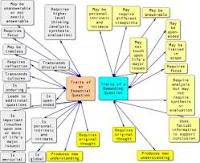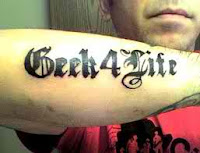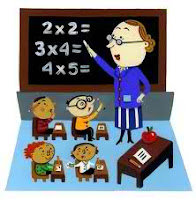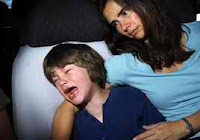Bad language (i.e., cursing, name-calling, rude statements like “I hate you,” etc.) and the Aspergers condition often go hand in hand.
Bad language displayed by a youngster with Aspergers or High-Functioning Autism (HFA) can follow him into adulthood if he isn’t shown the proper way to respond to situations.
Here are some very simple – yet very effective – tips to prevent bad language in Aspergers and HFA children:
1. Keep control yourself. If you, the parent, over-react to something, then your youngster is going to see justification in the way he behaves. Therefore, you too must limit your use of curse words, as well as “near-curse words” (e.g., freakin, crap, bull, etc.).
2. Positive reinforcement focuses on rewarding your Aspergers youngster for good behavior. In this way, the parent does not have to wait for bad behavior to take place before the youngster is recognized. With positive reinforcement, you may reward the youngster for going an entire day without using a curse word. Negative reinforcement can be used in conjunction with positive reinforcement, or they can each be used alone.
3. Establish a “Cursing Jar”. If your child curses, he has to put a quarter into the jar. If money isn’t readily available, a note with your child’s name on it can go into the jar, and every note might equal 10 minutes of an extra task or chore. NOTE: Doing his regular chores shouldn’t be a consequence; you should give your child extra things to do. If you make your child do the dishes because he cursed, and then you ask him to do them again on Thursday night as a regular chore, he’s going to ask, “Why? I didn’t do anything wrong.” He’ll feel like he’s being punished, when all you want is for him to do his normal chores around the house. So it’s an extra chore you want to add on. Also, the sooner you issue the consequence after the cursing – the better!
4. Negative reinforcement can be useful for controlling bad language. An Aspie usually has obsessions. Thus, if you take away time from his obsessive activity, it can reinforce that when he uses bad language, he loses the privileges to do his favorite things. Have a visual schedule for your youngster. Then, when he says a bad word, demonstrate that this behavior is not acceptable by marking off an hour of his time that would be devoted to doing his favorite thing (e.g., playing video games, watching TV, reading a book). Even if his favorite activity is a rather “productive” way for him to spend time, withhold the privilege for a period of time (anywhere from one hour to one day works best).
5. Some Aspergers children will swear passive-aggressively, under their breath. But let’s face it, even if it’s under their breath, it’s the same thing, and you should give your child consequences for it. They may say, “I didn’t say anything. That’s not fair!” You can come back with, “I’m sorry, but that’s what I heard you say. In the future, speak more loudly, or there will be consequences.” In other words, don’t let muttering curse words under his breath become a way for him to manipulate so that he doesn’t have to develop self-control.
6. Role-playing can be a useful technique in controlling bad language in Aspergers kids; however, most Aspies do not empathize with the feelings of others since they don’t understand them. Therefore, role-playing is helpful. Find books (online, bookstore, library) that demonstrate how people in similar situations use appropriate actions and how they feel.
7. Discuss with your Aspergers child that you do not find cursing acceptable. Help him to find other, more appropriate words – and ways – to express himself.
8. Set household rules against cursing. Establish consequences that will be used if the cursing rule is broken.
9. Do not be a pushover. If you let your Aspie break the rules without following through with a consequence, he will continually break the rules in the future.
10. Know that most kids with Aspergers do not respond well to being “punished.” However, “discipline” can be quite effective. Discipline teaches the Aspergers youngster how to act. Discipline should make sense to him, and should have something to do with what he has done wrong. Discipline helps a child feel good about himself, and gives him the chance to correct his mistakes. It puts him in charge of his actions. On the other hand, punishment only tells a child that he is bad. It does not tell a child what he should do instead. So punishment may not make sense to the Aspie. Punishment usually has nothing to do with what he did wrong.
Below are some examples of what your Aspie can do wrong. Some types of punishment and discipline are given. Can you see how they are different?
Example 1: In a tantrum, your four-year-old Aspie throws his crayons all over the floor.
Punishment: You say, “That’s a bad boy” and slap his hand.
Discipline: You say, “You can choose to pick up your crayons within the next five minutes, or you can choose to lose coloring privileges for the rest of day …what do you want to do?”
Example 2: Your seven-year-old Aspie refuses to do his chores.
Punishment: You spank him and send him to his room.
Discipline: You say, “You can do your chores and then play your favorite video game, or you can go to your room without any privileges …which one would you like to do?”
My Aspergers Child: Preventing Meltdowns









.jpg)


